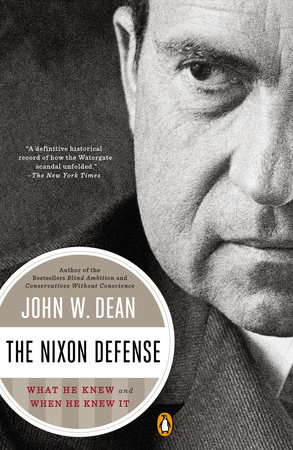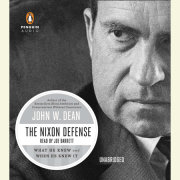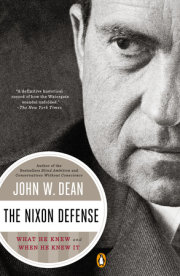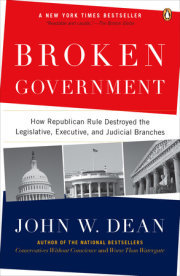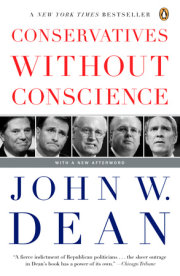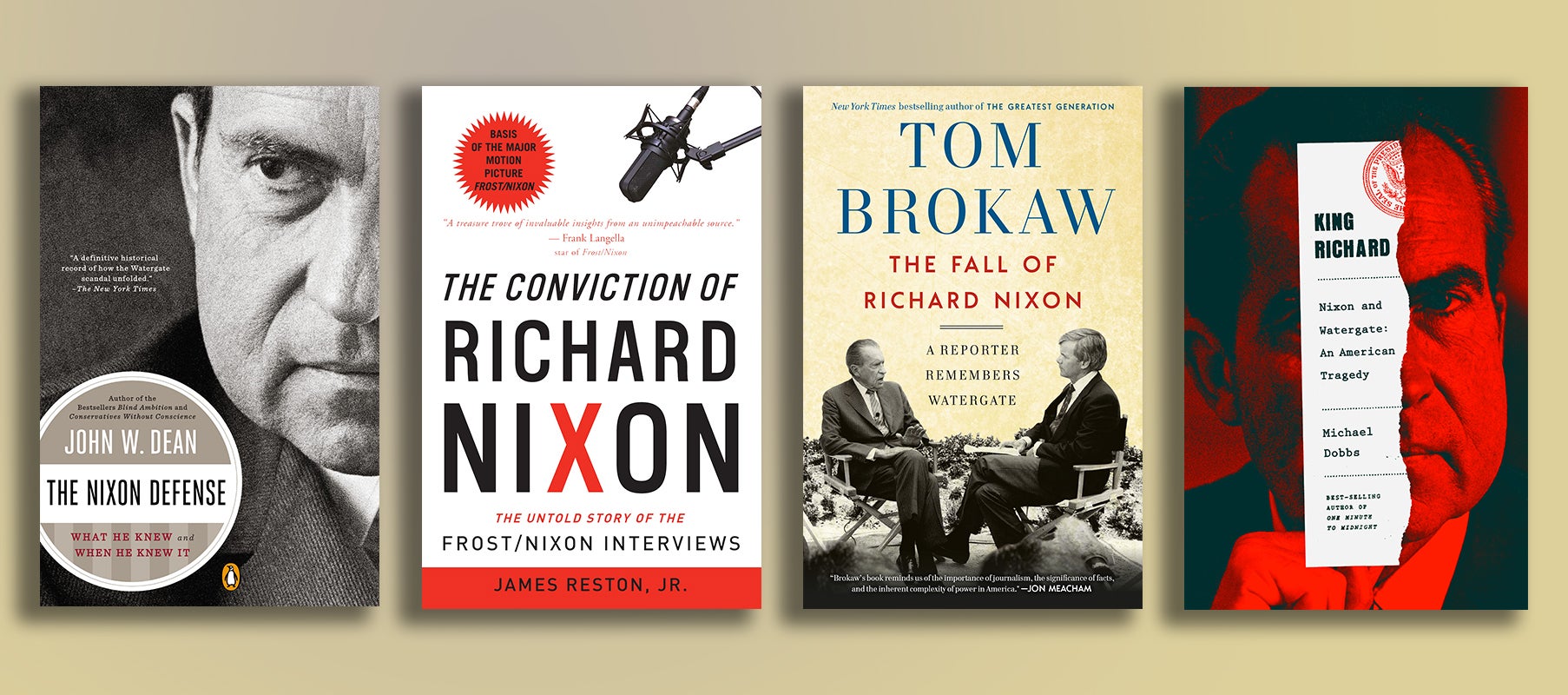On June 20 President Nixon’s day began as did most throughout his presidency. He had breakfast in the residence, on this morning at 8:40 A.M., where he scanned The Washington Post and the New York Times, both of which had front-page headlines on the Watergate incident: The Times’s was EX-G.O.P. AIDE LINKED TO POLITICAL RAID, by Tad Szulc, and the Post had WHITE HOUSE CONSULTANT TIED TO BUGGING FIGURE, by Bob Woodward and E. J. Bachinski. Both reported Hunt’s connection to the break-in, the Times connecting him through his ties with the Miami Cubans and the Post reporting that Hunt’s name and White House phone number had been found in the address books of two of the arrested men. Both stories reported that Hunt had been a consultant to Chuck Colson and that White House spokesman Ron Ziegler had said from Florida that he would not comment on “a third-rate burglary attempt.” But Ken Clawson, a former Washington Post reporter who now worked for Colson, told the Post that Hunt had left the White House and Colson had no knowledge of his Watergate-related activities. The Post account also noted that Larry O’Brien said the Democrats were considering a lawsuit.
When the president arrived in the Oval Office at 9:00 A.M., he signed a few documents and then scanned his news summary, a document prepared every weekday by White House aides containing highlights of the coverage of the Nixon administration by network television news, wire services and newsmagazines, with occasional special issues on media coverage of issues of interest to the president, who was not a television viewer. The document summarized a vast amount of information from the preceding twenty-four-hour news cycle (or for forty-eight hours over weekends) and served as both an information and a management tool. When the president finished reading it, the staff secretary reviewed his marginal notes and directives and prepared an “administratively confidential” memorandum to inform various staffers of the president’s requests or directives. Because the summary could become voluminous, Haldeman often reviewed it beforehand, underlining with a blue felt-tipped pen the material that he thought might be of particular interest to Nixon.
Watergate was a lead item in that day’s summary (with Haldeman’s underlining reproduced here): “3-4 minutes on all nets on what [NBC’s John] Chancellor called ‘1 of the most fascinating and exotic stories ever out of DC.’ The GOP, said Chancellor, is ‘scandalized and fit to be tied.’ McG[overn] and [the Republican National Committee chairman, Senator Robert] Dole on all nets; O’Brien on 2 shows w/HHH [former vice president and again senator Hubert Humphrey (D-MN)] and [Senator Edmund] Muskie [D-ME] getting in their licks as well on CBS. Dems will file a court suit Tues.”
On page 16, under the heading POLITICS and the subheading “DNC Break-In,” the following item caught the president’s attention: “On CBS Hubert Humphrey said RN and cabinet ‘owed country an apology and explanation for this incredible act’ although he had no evidence GOP behind the incident. Humphrey acknowledged such things can happen in US politics, he discounted a Democratic investigation because it would be politically motivated and said the Department of Justice would have to be trusted.”
After reading this, the president wrote questions for White House aide Pat Buchanan: “Haven’t there been some other break-ins in political and government offices? Where were the cries of anguish when the [New York] Times and [Jack] Anderson got [Pulitzer] prizes for publicizing stolen top-secret government documents [referring to the Pentagon Papers]?”
As Nixon was reading the summary, Bob Haldeman and John Mitchell were joining John Ehrlichman in his office, on the second floor of the West Wing, directly over the Oval Office. I was asked to join this meeting, which was in progress when I arrived. I was told that Attorney General Richard Kleindienst was in the West Wing lobby and would soon be joining us.1 Kleindienst would later adamantly claim that he had never attended this meeting, and Mitchell, Haldeman and Ehrlichman would later claim that they could not recall what had transpired during the forty-five minutes before I arrived, although they did not dispute my recollections, or that Kleindienst had attended as well. As I later summarized:
I expected some weighty decisions to be made in this company. Wrong. All parties were guarded. The White House faction did not trust the Justice Department faction, and, moreover, no one wanted to acknowledge how serious the problem might be. . . . Ehrlichman raised the only matters of substance, and even they were marginal. He told Mitchell that the White House would steer all Watergate press inquiries to the Re-election Committee. Mitchell nodded, not happy, not objecting. Then Ehrlichman asked Kleindienst about the Watergate leaks. Kleindienst replied that they were coming from the Metropolitan Police. He said the problem would soon be solved, since the FBI was assuming jurisdiction over the investigation.2
Haldeman, however, did record in his diary that evening: “I had a long meeting with Ehrlichman and Mitchell. We added Kleindienst for a little while and John Dean for quite a while. The conclusion was that we’ve got to hope the FBI doesn’t go beyond what’s necessary in developing evidence and that we can keep a lid on that, as well as keeping all the characters involved from getting carried away with any unnecessary testimony.”3
Ehrlichman went from our meeting to the president’s EOB office, where they talked from 10:25 until 11:20 A.M. Honoring the president’s request, Ehrlichman did not mention Watergate, but just as they were parting, the president made the point to Ehrlichman that he had noted on his news summary that the press was all excited about the Watergate break-in but that they passed out Pulitzer Prizes to the Times and Anderson for stealing documents.4 He would repeat that complaint in later conversations throughout the day.
After Ehrlichman departed the EOB office, the president ordered a bowl of soup for lunch and complained to a Secret Service agent about the dictating equipment he had used in the Bahamas and on Air Force One over the weekend. From 11:26 A.M. until 12:45 P.M. the president met with Haldeman.5 While Watergate was not the focus of their discussion, the subject did arise in passing early on and again at the end. But this June 20, 1972, conversation lives in infamy because when the recording of it was later subpoenaed by the Watergate special prosecutor, it contained an 18½-minute gap consisting of a buzzing sound that experts determined had been caused by five to nine deliberate erasures of the tape. This gap created a media frenzy when it was revealed, and it was the basis for a mystery that has lasted to this day.*
The conversation began with talk of the good weather they had left behind in Florida, followed by a discussion of the president’s schedule. Because Nixon expected poor weather in July, when they were to be in California, he told Haldeman he would return to the Bahamas in August. After going over routine matters, Haldeman mentioned that the Republican governor of South Dakota was having some political trouble, and the president began to dictate the outline of a letter. South Dakota was, of course, the home base of his likely reelection opponent, Senator George McGovern. It was while discussing this letter to the governor, some seven minutes into the conversation, that the 18½-minute buzzing begins.
The fact that they next spoke about Watergate can be determined by notes Haldeman made during the meeting; read as a record of the meeting they do not reveal anything of particular importance.6 Haldeman’s note-taking procedures have been misunderstood; he did not make a record of or even cite the highlights of what was said at any given session but instead recorded only matters that called for further attention and follow-up. It was in his diary he made an effort to record the actual gist of meetings and events, or of matters he thought of importance on any given day. Haldeman made his diary entries at the end of each day with uncanny discipline and regularity, and given the often highly incriminating information they contain, it does not appear he filtered information if he remembered it. Accordingly, Haldeman’s diary entry is often more revealing but adds little to his notes for June 20, 1972.
Per Haldeman’s notes (which I have translated from his abbreviated shorthand7), the following Watergate matters were raised during that morning’s meeting: The president instructed Haldeman to be sure his EOB office was thoroughly checked for bugs at all times. He wanted to know what the White House “counter-attack” to Watergate would be. He wanted to launch a public relations offensive that would undermine Watergate by charging his opponents with their own questionable activities. Nixon had always been annoyed by the well-known fact that Jack Anderson had gotten away with bugging (and at the time of Watergate there was a rumor that McGovern’s staff had tried to bug Nixon’s reelection committee). The president wanted to point out that libertarians had created a callous public attitude toward bugging and wiretapping, and “the public didn’t give a shit about it.” Finally, he repeated to Haldeman the complaint that his detractors were making a big deal out of stealing information from the DNC while justifying the theft of the Pentagon Papers and Anderson’s publishing of national security secrets. He told Haldeman that they “should be on the attack” regarding Watergate, if for no other reason than diversion. The 18½-minute gap also covered material unrelated to Watergate, according to Haldeman’s notes, for the president asked him to find out the schedule of the Senate Foreign Relations Committee hearings on the Strategic Arms Limitation Talks (SALT) agreement, and they discussed details of an upcoming trip to California.
After listening to countless hours of Nixon’s conversation, I can confirm what he wrote in his memoir about the gap in the June 20 conversation: “It has always been my habit to discuss problems a number of times, often in almost the same terms and usually with the same people. This is the way I tried to elicit every possible piece of information and advice and examine every possible angle of a situation before making this decision.”8
I would add that Nixon also had the habit of ending a discussion by going over key points he had made during it, and that appears to have been the case for this June 20 conversation. At its conclusion he returns to the subject of Watergate, as Haldeman’s notes recorded, but in a slightly different form: “If I can come back on this thing more intently, I can be very, very serious on the hypocrisy. There’s no question there’s a double standard here.” Haldeman agreed and made an inaudible counterpoint, which Nixon dismissed. “I don’t give a shit about that. Also regarding political money, and contributions, too. They’re all doing it. That’s the standard thing. Why the Christ do we have to hire people to sweep our rooms?”
“Because we know they’re—”
Nixon finished Haldeman’s sentence, “Yeah, they’re bugging. And why—”
“Sue ’em,” Haldeman quietly interjected, as the president was making his point.
“We have been bugged in the past, haven’t we?”
With this question the recording ends abruptly, and it is followed by 2 minutes and 53 seconds of a specific tone added throughout the recordings by NARA to indicate that personal material was withdrawn. The NARA Tape Subject Log for this conversation (No. 342-16), prepared by people who listened to this redacted portion, indicates that Nixon’s rhetorical question referred to his “previous campaigns”—namely, the 1968 presidential campaign. Nixon raised this particular topic throughout Watergate, believing that if he could make an issue of what had been done to him, it would place the DNC break-in in context.
Haldeman’s diary entry about this June 20 conversation is consistent with Nixon’s account of it in his memoir (which undoubtedly his postpresidency staff checked) concerning the information missing in the 18½-minute gap: “The P was concerned about what our counterattack is, our PR offensive to top this. He felt we have to hit the opposition with their activities. Also put out the point that the libertarians have created public callousness. Do they justify this kind of thing less than stealing the Pentagon papers, or Anderson’s files, and so on. He feels we should be on the attack for diversion, and not just take it lying down.”
Nixon further explained in his memoir: “I am confident that our discussion about the break-in covered much the same points at 11:26 in the morning as it did just five hours later at 4:35 in the afternoon: that if any of our people, at any level, had embroiled us in such an embarrassing situation; and that the investigations and depositions, if they went too far in pursuing all angles available, would hand the Democrats a major campaign issue.”9 Haldeman’s diary confirmed that Nixon raised the subject again several times during the day, “and it is obviously bothering him. He had Colson over to talk about it, and then later called me a couple times on various specifics. He called me at home tonight, saying he wanted to change the plans for his press conference and have it on Thursday instead of tomorrow, so it won’t look like he’s reacting to the Democratic break-in thing.”10
At 2:16 P.M. Nixon called Colson, whose office was right beside his in the EOB, and asked him to come over. They met from 2:20 P.M. to 3:30 P.M.11 Watergate was discussed for approximately twelve minutes at the outset, and then fleetingly at the end. The president tried to boost Colson’s spirits—he was already being implicated in Watergate by news accounts—while sharing his thoughts about how the White House should deal with the problem.
“Now, I hope everybody is not going to get into a tizzy about the Democratic Committee,” Nixon said, sounding as if he is stretched out in his favorite easy chair, beside his desk.
“It’s a little frustrating. Disheartening, I guess, is the right word,” Colson replied, with something of a pained tone, adding, “Pick up that God damn Washington Post. See you’re guilty by association.” Colson was annoyed about the story linking him to the Watergate break-in because Hunt had worked for him, although he had been off the White House payroll for three months.
The president listened to Colson complain about how his family wondered if he had been involved but dismissed such speculation, because Nixon said he would not have someone that careless on his White House staff; “A lot of people think you ought to wiretap. Or knew why the hell we’re doing it. They probably figure they’re doing it to us.” Then Nixon added, “Which they are.” When Colson concurred, the president asked, “That’s why they hired this guy [McCord] in the first place, to sweep the rooms, didn’t they?”
“Yes, sir. Frankly, sir, I haven’t gotten into all the details that we want to on this. But I assume he was hired to protect their offices,” Colson added regarding CRP offices.
“Well, they’d better. Better have someone.” With political espionage on his mind, the president told Colson that Haldeman was working with Nixon’s political mentor, Murray Chotiner, who had a political operative known only as “Chapman’s Friend.” This individual, posing as a journalist, was in fact a spy at the McGovern campaign reporting to Chotiner, and his information was shared only with Haldeman and Mitchell. The president explained, “Chotiner has some guy with McGovern, aides he had on the road, the plane, the bus. I just said to Bob: Get it out, make a good story. Get it out.” Nixon wanted to leak some of the gathered material to go after McGovern. Then, after speculating on whether they had spies in their own ranks, Nixon returned to Watergate. “On this thing here,” he declared, but then, apparently reconsidering, said in a near whisper, “I’ve got to, well, it’s a dangerous job.”
“Well, Bob is pulling it all together. Thus far, I think we’ve done the right things to date,” Colson reassured him.
The president raised a central issue with respect to what would become a quickly developing cover-up: “I think the real question is whether we want it to remain with the people charged, whether they’ll hold up. I understand, basically, they’re all pretty hard-line guys.” Colson agreed that was correct. “Or if we are going to have this funny guy take credit for that,” Nixon wondered, probably thinking of Liddy, whom he later characterized as “a nut,” or perhaps McCord. He often confused the two men in the early days, and it is not clear if he knew of Liddy’s role until the following morning.
Colson, however, thought Nixon was referring to Hunt, and became defensive. “’Course, I can’t believe he’s involved. I think he’s too smart to do it this way, he’s just too damned shrewd. Too much sophisticated techniques. You don’t have to get into [unclear] with heavy equipment like that, put it in the ceiling. Hell of a lot easier way.”
“It doesn’t sound like a skillful job,” the president noted. “If we didn’t know better, we’d have thought it was deliberately botched.”
. All rights reserved. No part of this excerpt may be reproduced or reprinted without permission in writing from the publisher.

